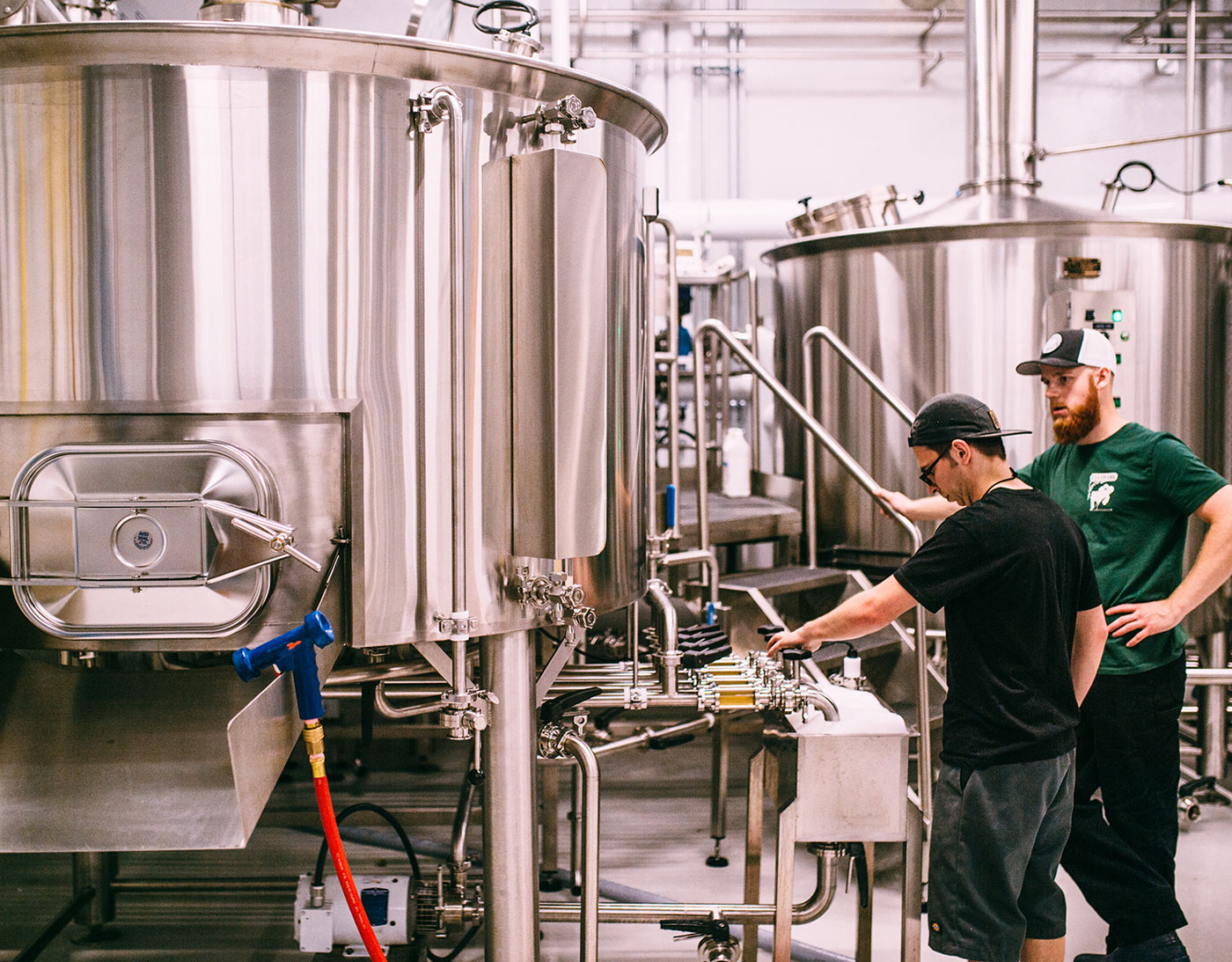
Few events have been more anticipated in the local beer scene than the first releases from the Monolith, the imposing concrete box built by Blind Enthusiasm Brewing to make beer using time-honoured Old World methods, right here in Edmonton.
The Monolith specializes in mixed-fermentation beers, which are prized for their complexity. Like the name implies, mixed fermentation uses a combination of microbiota, mediums and methods that each leave its mark, producing beers with sour, fruity, musty, acidic and dry traits in varying degrees.
Brasserie Cantillon in Belgium is a world-renowned practitioner of the craft, and is famous for beer spontaneously inoculated by wild, airborne yeast strains and bacteria as the wort cools in large open vessels called koelschips. Barrel aging gives mixed-fermentation beers additional characteristics from flavours and microbes left behind by the original contents, something that Jester King, in Austin, Texas, is well known for. Some varieties use fruit additions to soften the beer’s funkier qualities.
It’s true that the people behind the Monolith would love having their beer mentioned in that lofty company — but it would be a mistake to assume that international recognition and cult status are their primary motivations.
“It starts with serving your local audience,” says Blind Enthusiasm’s owner, Greg Zeschuk. During a recent conversationwith Zeschuk and the Monolith’s head brewer, Doug Checknita, it’s clear that they’re determined to chart their own creative path with beers they want Edmontonians to discover and enjoy.
“I don’t want to be Cantillon 2.0,” says Checknita, who did a stint there after graduating from the Olds College brewmaster program in 2015.
“I think we’ve found our own kind of voice. We’re doing something different that’s really accessible.”
The Monolith’s first release, Measure of Patience, is a good illustration of what Checknita means: It’s a golden ale with lush stone fruit flavour, some mild citrus, moderate acidity and just a touch of tartness. There’s a lot going on but, at 5.9 per cent alcohol, it’s not a “big” beer, nor an extreme one.
The Monolith’s early releases so far have used yeast and bacteria pitched by human hands, but the brewery is making spontaneously-fermented beer inoculated with airborne yeast and micro-organisms. The process happens in a room on the top floor, where wort is pumped from the ground-floor brewhouse into a circular, stainless steel koelschip. As the wort cools, it’s exposed to fresh air that comes in through louvers equipped with filters.
No one knows how the program will evolve, but there’s potential for isolating and propagating yeast that has something uniquely “Edmonton” about it — giving the beer something akin to terroir, a term usually used in winemaking that refers to a set of local conditions, like soil and climate, that make a particular wine unique.
Combined with all the other things that go into beer — different varieties of malt and hops, along with different mediums and methods for aging — the possibilities are intriguing.
“That’s the beauty of brewing over wine-making: You have a million things you can choose from, but not a lot of breweries do,” Checknita says.
Like this content? Get more delivered right to your inbox with Ed. Eats
A list of what’s delicious, delectable and delightful.
This article appears in the February 2020 issue of Avenue Edmonton





